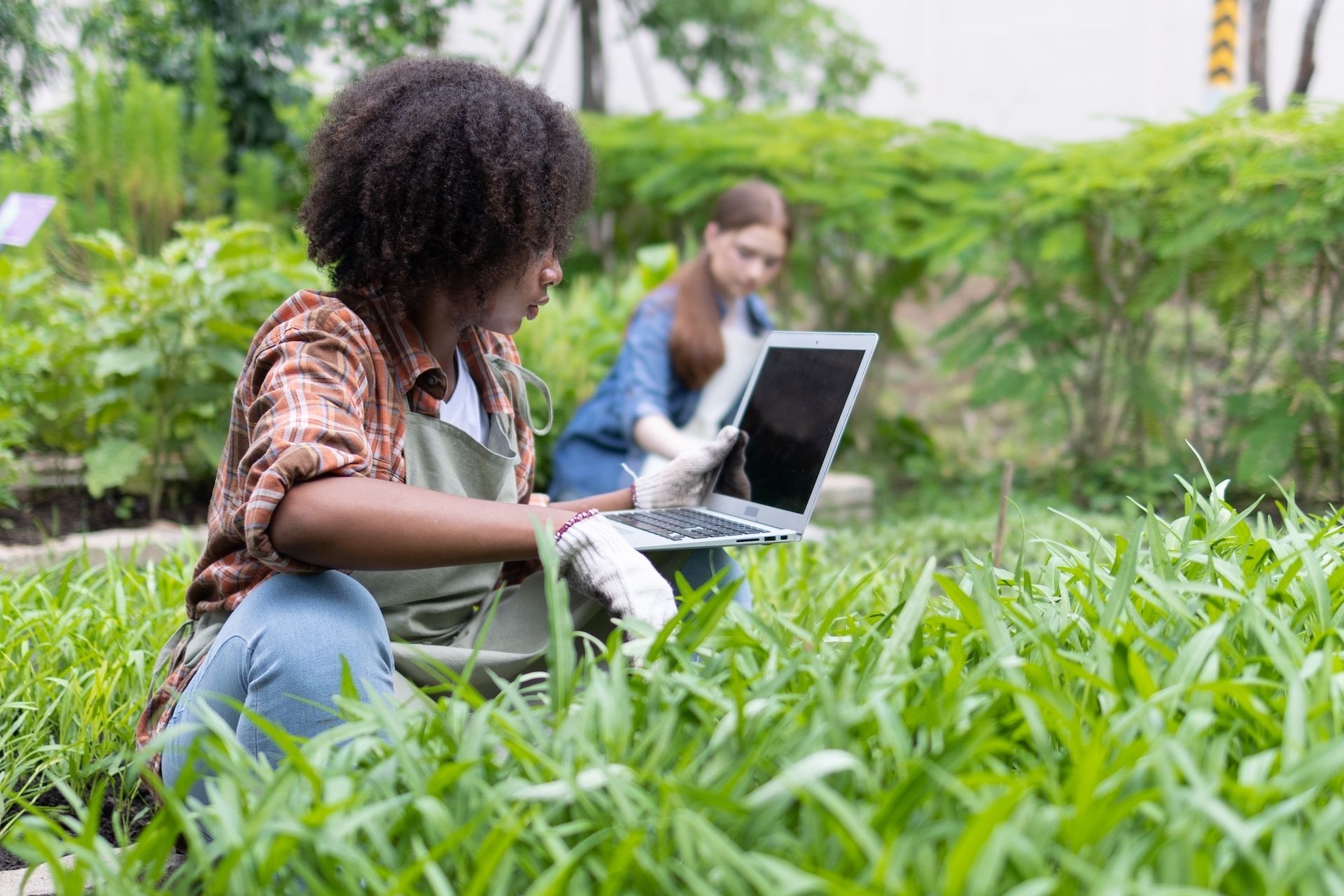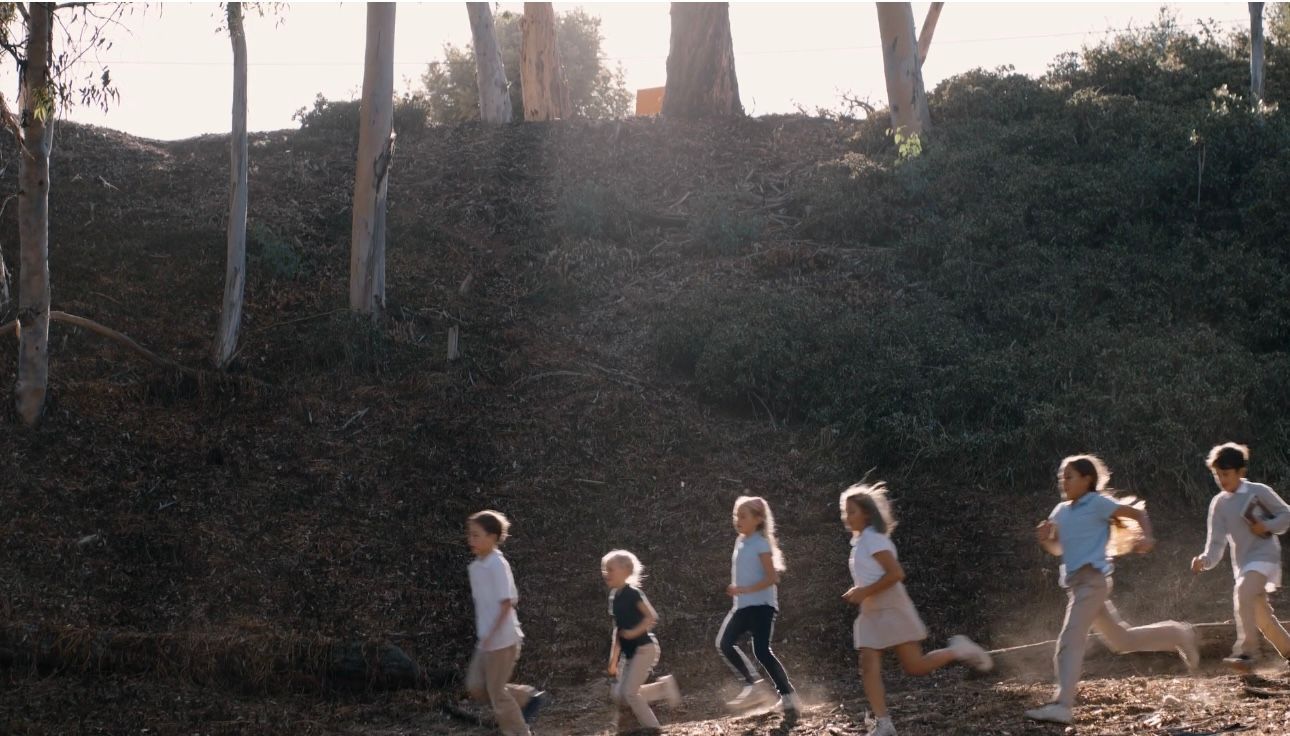
As humans, we develop as social beings in our communities, society, and culture. In fact, associating with others is a fundamental human tendency. Therefore, in Montessori education we prioritize social development, even (or especially) as children grow into adolescents.
At the adolescent level, young people are experiencing a bridge from childhood into adulthood. They no longer need and want to create little practice societies as they did in their elementary years. Instead, adolescents need and want to understand and experience adult-level roles and responsibilities. Adolescents therefore require new opportunities for independence and valorization, as well as opportunities to contribute in purposeful ways to their community. In Montessori, we call this social organization.
In order to support this experience, Dr. Montessori envisioned an ideal setting where adolescents could live within as many aspects of society as possible. In her book, From Childhood to Adolescence, Dr. Montessori even outlines a road map for social organization at the adolescent level. In describing the practical aspects of social organization, Dr. Montessori suggests that adolescents live away from their families in a residential setting, preferably a farm that includes components such as a shop or store, a “museum of machinery," and a way to host others.
Residential Experience
Developmentally, adolescents need to break away from their families. Having some sort of residential setting or away-from-home option allows adolescents to figure themselves out in new ways amongst different adults. In addition, a residential opportunity allows adolescents to live in a community and recognize the impact they have within and on their community. Even if a full residence isn’t possible, adolescents can prepare meals for each other, make sure the kitchen and tools are ready for the next meal, ensure the compost is taken out, clean the dining area, and so forth, all of which allow adolescents to experience how their work matters.
This kind of experience is similar to how students in a Montessori primary or elementary environment become aware of how what they do in the classroom impacts others: if they run, are loud, or step onto someone’s work rug, that has an impact. Yet at the adolescent level, the experience of social organization needs to be in the context of real living. Adolescents need to step into adult-level roles. They need to coordinate lunch for their community or be the barn manager in charge of animal care. This also means they need to handle what happens if part of the work is left undone.
Land-Based Opportunities
Another ideal aspect of adolescents’ social organization is being on a farm or working on the land, which offers adolescents the opportunity to experientially understand our agricultural roots as humans. To survive, humans have needed to grow, raise, and harvest our food. When working on the land, adolescents get the experience of what it means to care for other living things and how those living things provide human sustenance. There are big moral questions that come up in this process: what do to when an animal is sick, how to honor an animal that will be butchered for meat, or how to handle pests that are decimating crops. Farm life allows adolescents to grapple with challenging questions that are part of living in a society.
Production & Exchange
Similarly, when operating a shop or store, adolescents get to experience the process of production and exchange as it works in society. They can labor to make sure a hive of bees is healthy and producing honey, and then determine how to package and market that honey to sell. Or they can create cutting boards in a wood shop and puzzle over how much to sell them for based on the cost of materials, the time for labor, and the value of their artistic work. They can harvest cucumbers and pickle them. They can create artwork for auction. They can harvest lettuce and wash it to prepare a salad for the community. Opportunities abound.
This experience also offers adolescents the chance to understand interconnections and interdependencies. Many people have done a great deal of work so that we can enjoy each thing we eat, purchase, or enjoy! Through the process of production and exchange, adolescents can also begin to understand the role of monetary systems and how to budget, plan, save, invest, share, and be responsible with their earnings.
Hosting & Using Tools
Other ideal options for adolescents include a hostel or host experience and a “museum of machines.” In hosting, adolescents get to experience how to give back to others. For example, in making a meal for guests or providing a place for parents to stay for the night, adolescents must put others’ needs first, while also taking on new roles and responsibilities.
Finally, Dr. Montessori’s “museum of machines” isn’t about having machines on display behind glass but rather means having many tools and machines available for adolescents to use, take apart, and repair. This collection of machines allows adolescents to learn and practice with tools that will help them on the land or farm, with their residential setting, in their shop, or with their hosting experience. Use of different tools of society helps adolescents learn skills and abilities that will serve them as capable adults.
Preparation for Adult Life
Preparation for adult life is a significant part of the adolescent experience. This isn’t preparation for a job, though! Rather preparation for adult life means that adolescents begin to understand the context for the human experience amongst other living things on earth, within the big picture of human progress, how we have used technology for the building up of civilization, and how each of us is a part and player in human history.
It is important to remember that adolescents are on their path to maturity. Social organization offers them the opportunity to step firmly onto the bridge from childhood to adulthood by living and experiencing aspects of what it means to be in society and the moral questions that arise as a result of being a human living amongst others in the web of life. In addition, social organization provides adolescents the chance to develop their own independence in the context of how we are all connected to each other.
In our families, communities, or schools, let’s keep these ideal principles in mind as we support our adolescents. We also welcome you to visit our school to see how we prioritize social development!


